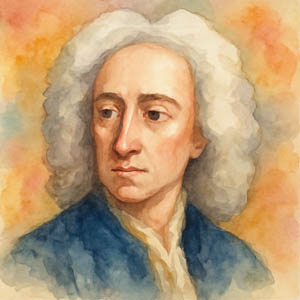 Called “the great moral poet of all times” by Lord Byron, Alexander Pope (1688–1744) was born on this day to wealthy parents in England. At age 12, a crippling spinal curvature confined him to home, where books became his sanctuary and planted the seeds of genius.
Called “the great moral poet of all times” by Lord Byron, Alexander Pope (1688–1744) was born on this day to wealthy parents in England. At age 12, a crippling spinal curvature confined him to home, where books became his sanctuary and planted the seeds of genius.
By 23, Pope had written the philosophical poem An Essay on Criticism, defining Classicism and offering the timeless reminder: “To err is human, to forgive, divine.”
Known in his time for his sharp wit and mastery of double-meanings, Pope brought classical ideals into lively contemporary form using the heroic couplet. With fellow writers of the Scriblerus Club, he skewered false tastes in learning. His biting parody Dunciad (1728) remains a fierce, elegant critique of ignorance.
“The hidden harmony is better than the obvious,” he mused. His brilliant translation of Homer’s Iliad (1725) brought him success and lasting praise, yet Pope longed for quiet. At his villa in Twickenham, along the Thames, mirrored grottoes and lush gardens became a retreat for a body in pain but a spirit still blooming.
“All gardening,” he wrote, “is landscape painting.”
 Goodness is an echo that resounds, becoming an aria. 🎶
Goodness is an echo that resounds, becoming an aria. 🎶
